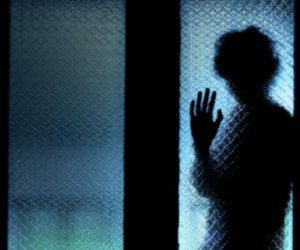Heroin Abuse

Heroin is a highly addictive analgesic opioid drug that is derived from morphine and is classified as a Schedule I narcotic in the U.S. The drug is available as a white to dark brown powder or as a dark sticky substance known as Black Tar in drug slang. Heroin can be smoked, snorted or injected and street names for the drug include: Dope, Brown Sugar, Big H, Junk, China White, Smack, Skag and Horse. Most people who abuse heroin first started abusing other opioid drugs but later switched to heroin because it is cheaper to buy and is easily obtainable. Because heroin acts as a depressant in the body and it blocks the ability to perceive pain, many people use it to self-medicate against chronic pain.
Symptoms of Heroin Abuse
No matter how heroin is taken, it enters the brain rapidly, converts back to morphine and binds to the opioid receptors in the brain, brain stem and body. It affects respiration, blood pressure and arousal. Anyone who knows anything about heroin knows that an overdose of heroin may cause breathing to stop. Hypoxia may also occur, which is not getting enough oxygen into the brain. These conditions may produce temporary or permanent damage neurologically and psychologically, with the worst case scenario being permanent brain damage, coma or death.
Opiate drugs are often prescribed to treat chronic pain so it is very easy for people to use heroin to self-medicate when they suffer from pain. Although users are getting relief for their pain, they are also suffering from many adverse effects that heroin abuse produces. Some of these effects include: structural and functional changes in the brain, collapsed veins, pulmonary problems, gastrointestinal cramping, itching, nausea, vomiting, constipation, infections, abscesses, depression, mood swings, delusions, agitation, hostility, disorientation, paranoia, liver disease, blood clots, seizures, overdose and death.
The severity of symptoms will differ for each heroin abuser depending upon how often the drug is used and at what dosage. Biological and psychological symptoms usually worsen with long-term heroin use, and recovery from heroin abuse may require the assistance of medical professionals.
Heroin Treatment Programs
There are numerous treatment programs available at drug rehab centers, to help those people who abuse heroin. A combination of behavioral therapy and medications are quite effective in treating heroin abuse, after the patient has completed the detox process.
During the detox process, the patient will slowly be weaned off of the heroin. Knowing what to expect about heroin withdrawal will help the patient understand what their body is going through. These symptoms are the body’s response to readjusting itself without heroin.
A variety of withdrawal symptoms that may be experienced by the patient are heroin cravings, diarrhea, vomiting, insomnia, restlessness, muscle and bone aches and pain, depression, anxiety, agitation, lack of energy, increased heart rate, runny nose, sweating and low blood pressure. Symptoms usually peak within 48 to 72 hours after the last heroin dose is taken and start to lessen within one week. Medications are usually given to alleviate or eliminate some of the symptoms.
Post acute withdrawal symptoms may be experienced by some people, but they will be mild. These symptoms include: brain fog, cravings for heroin, memory impairment, repetitive thoughts, mood swings, difficulty concentrating, abnormal sleep patterns and negative reactions to stress. The patient should understand that these symptoms are caused by the brain and body still readjusting to life without heroin. By having positive thoughts and focusing on other things, the patient will help to alleviate their symptoms. If the patient focuses on every nuance of withdrawal symptoms, it will only increase their stress and cause more discomfort. The best way that the patient can self-medicate is to take their attention off of them self.
Drug rehabilitation centers have experienced and professional medical teams that know all about heroin abuse and withdrawal. They are fully equipped to help the patient get through the detox process as easily as possible. The treatment programs that they offer will help the patient understand their addictive thoughts and behavior and develop new skills to avoid relapse. The patient will no longer have to self-medicate with heroin because they will be empowered from within to effectively cope with future problems. Individual and group psychological counseling treatment programs will equip and support the patient to begin a new life without heroin abuse.
If you or a loved one needs help with abuse and/or treatment, please call the WhiteSands Treatment at (877) 855-3470. Our addiction specialists can assess your recovery needs and help you get the addiction treatment that provides the best chance for your long-term recovery.
